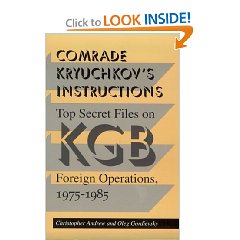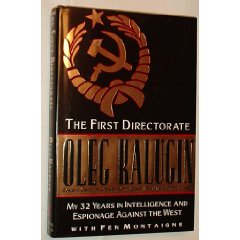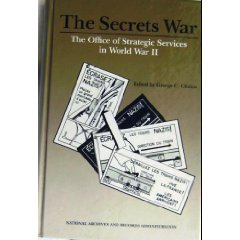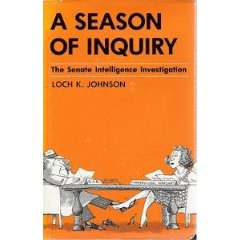Review: Chinese Intelligence Operations
4 Star, Intelligence (Government/Secret)Review: The First Directorate–My 32 Years in Intelligence and Espionage Against the West
5 Star, Intelligence (Government/Secret)Review: By Way of Deception –The Making and Unmaking of a Mossad Officer
4 Star, Intelligence (Government/Secret)One of my atmospherics books, enjoyable for its description of Mossad training exercises for new Career Trainees, and for its insights into how Israeli fully integrates military assistance carrots and clandestine intelligence follow-ups. Some insights into Mossad's deliberate manipulation of U.S. intelligence and a few allegations regarding U.S. hostage situations where Mossad might have done more but chose not to.

Review: Tower of Secrets–A Real Life Spy Thriller
4 Star, Intelligence (Government/Secret)Review: The Secrets War–The Office of Strategic Services in World War II
4 Star, Intelligence (Government/Secret)Review: A Season of Inquiry–The Senate Intelligence Investigation
4 Star, Congress (Failure, Reform), Executive (Partisan Failure, Reform), Intelligence (Government/Secret)“You see, the way a free government works, there's got to be a housecleaning every now and then.” Harry Truman, as cited on the first page of the book. Well, in the U.S. Government, before you get a real housecleaning, it appears you have to build the vacuum cleaner from scratch every few years, and even then you only get the big dirt on the margins. This book is a very important book with all the more value today as we finally get serious about intelligence reform. Loch's professional and extraordinarily detailed account of the entire Church Committee investigation, its findings, White House attempts to avoid reform, and the rather bland outcomes that finally resulted, should be considered the key to understanding where we are today and why we so desperately need legislation to achieve substantive reform. Had Senator Church been chosen by Jimmy Carter as Vice President (Church was favored by the convention, with Mondale and Stevenson tied behind him), who knows what good might have come of his White House service.










